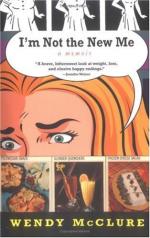Time moved with a dreadfully slow pace. The only way to keep warm was to remain in the bunk under a pile of blankets. Once, in my impatience, I got out and painfully hauled on my shoes, which were as cold as ice, and as hard almost; but my feet were blistered through lack of previous exercise, and after hobbling and shivering for a few minutes on the narrow floor, which was partly covered with a constantly accumulating deposit of snow, as fine and dry as flour and as frigid as though it had come straight from the Arctic Circle, I hurried back under the blankets. The invading snow penetrated through cracks that one could hardly see, around the door and the little square window.
At last noon came, and we ate our remaining morsels of dry bread, which finished our provisions. We had brought along only enough to provide a lunch on the way to the summit, intending to be back at the Grands Mulets not later than midday. Then the long afternoon dragged its weary hours, while the storm got higher, shriller, and colder, and the sense of our isolation became keener. Finally daylight began to fade. Slowly the light grew dim in the window at my feet, until it was a mere glimmer. Since we had to stay, we thanked the storm for hastening the fall of night. When the gloom became so dense that even the window had disappeared, Couttet lit a tallow dip, but it would not remain upright in its improvised holder, and the freezing draughts that stole through the hut kept it flickering so that he finally put it out, and we remained in the dark, not “seein’ things,” like Eugene Field’s youthful hero, but hearing things no less uncanny. The wind whistled, moaned, screeched, growled, and occasionally shouted with such startling imitation of human voices that I once asked Couttet if some one were not calling for help. But investigation showed that we were alone on our tempestuous perch, and that the cry of agony had been uttered by the hurricane, or the wind-lashed rocks.
[Illustration: PASSAGE OF A CREVASSE. MONT BLANC.]




